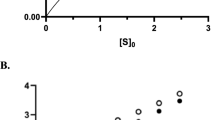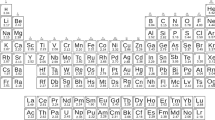Abstract
THE present practice of analysing data relating to reaction-rates in solution in terms of the parameters of the modified Arrhenius equation,  has led to a more complete understanding of the way in which polar substituents affect chemical reactivity by focusing attention on the fact that the differences in rate may arise through changes in the energy of activation or in the entropy of activation (non-exponential term) or in both. Among the several reactions investigated, a number have been found in which the differences in rate can be accounted for almost entirely by changes in the energy of activation, variations in PZ in comparison being almost negligible.
has led to a more complete understanding of the way in which polar substituents affect chemical reactivity by focusing attention on the fact that the differences in rate may arise through changes in the energy of activation or in the entropy of activation (non-exponential term) or in both. Among the several reactions investigated, a number have been found in which the differences in rate can be accounted for almost entirely by changes in the energy of activation, variations in PZ in comparison being almost negligible.
This is a preview of subscription content, access via your institution
Access options
Subscribe to this journal
Receive 51 print issues and online access
$199.00 per year
only $3.90 per issue
Buy this article
- Purchase on Springer Link
- Instant access to full article PDF
Prices may be subject to local taxes which are calculated during checkout
Similar content being viewed by others
References
Jones, Brynmor, J. Chem. Soc., 418, 676 (1942); cf. also J. Chem. Soc., 1006 (1928), 1831 et seq. (1935).
Williams and Hinshelwood, J. Chem. Soc., 1079 (1934).
Ingold and Nathan, J. Chem. Soc., 222 (1936). Evans, Gordon and Watson, J. Chem. Soc., 1430 (1937).
Stubbs and Hinshelwood, J. Chem. Soc., S 71 (1949).
Author information
Authors and Affiliations
Rights and permissions
About this article
Cite this article
JONES, B., ROBINSON, J. Additive Effects of Substituents. Nature 165, 453–454 (1950). https://doi.org/10.1038/165453b0
Issue Date:
DOI: https://doi.org/10.1038/165453b0
Comments
By submitting a comment you agree to abide by our Terms and Community Guidelines. If you find something abusive or that does not comply with our terms or guidelines please flag it as inappropriate.



